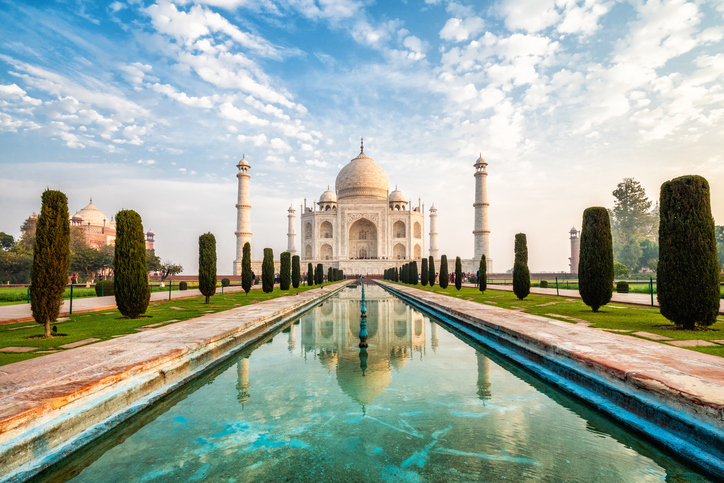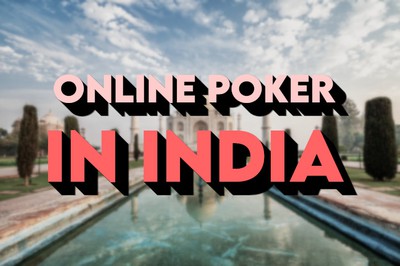Online Poker in India The ultimate player guide
Online poker has gone dark in India following a new law that prohibits real money online gambling. Most poker sites have stopped offering games, and pokerfuse does not currently recommend you play on any real money poker sites in the country.
Last updated: August 23, 2025


 Online poker is currently not legal in India. Poker sites have closed following the shock passage of the Promotion and Regulation of Online Gaming Bil in August 2025 that bans online poker and other skill-based games played for real money.
Online poker is currently not legal in India. Poker sites have closed following the shock passage of the Promotion and Regulation of Online Gaming Bil in August 2025 that bans online poker and other skill-based games played for real money.
Pokerfuse does not recommend you play real money online poker in India.
Indian Online Poker Market Overview
Gambling has traditionally been considered a taboo in India because of moral and religious beliefs. However, certain cultural practices, such as gambling during the Diwali festival, are widely accepted as auspicious.
Despite the general stigma, online gaming, including daily fantasy sports (DFS), rummy, and poker, has seen widespread acceptance, particularly among younger, urban Indians.
The Indian online poker market has rapidly evolved into one of the largest and most dynamic gaming sectors in the world. With a population of over 1.4 billion, a growing middle class, and a youthful demographic eager to embrace digital entertainment, India presents a significant opportunity for online poker operators.
History of India Online Poker Legality
India’s gambling laws at the federal level are rooted in the British-era Public Gaming Act of 1867, a 150-year-old statute that fails to address the rise of online gaming. This outdated legislation leaves the regulation of gambling to individual states. States like Goa, Sikkim, and Daman and Diu have established their own gambling regulations, allowing casinos to operate within their borders.
A key legal issue regarding poker’s status is whether it qualifies as a game of skill or chance. The Public Gaming Act specifically exempts “games of skill,” which are not considered gambling under the law.
The Supreme Court of India, along with several lower courts, has ruled that skill-based games like rummy and poker do not fall under gambling regulations. However, there are conflicting interpretations, with the Gujarat High Court, for example, ruling poker to be gambling. Different states have varied views on what constitutes a game of skill versus chance.
As a result, the legal landscape for poker is complex. Many legal experts argue that online poker is generally legal in India, except in a few states, such as Gujarat, Tamil Nadu, Telangana, Assam, and Andhra Pradesh, where restrictions are in place.
In August 2025, the Indian Parliament introduced the Promotion and Regulation of Online Gaming Bill, 2025, a bill that upended the country’s fast-growing real-money gaming industry.
It blanket banned real money online poker, rummy, fantasy sports, and other skill-based games.
The bill passed by both houses and received the President’s assent in very quick succession. The law will come into force once the government issues a notification.
The new law will be challenged in courts. According to local reports, several Indian gaming groups are holding discussions with lawyers about approaching the Supreme Court.
They are expected to argue on the grounds of lack of consultation, the devastating impact on a flourishing industry, and the fact that some banned games, like poker, are skill-based and should not be grouped with gambling.
Online Poker Taxation in India
Prior to the ban of online poker in India, players enjoyed a wide variety of options — but it came at a cost. The government mandated that operators deduct a 28% Goods and Services Tax (GST) on every deposit made by a player.
For example, if a player deposits INR 10,000, INR 2,800 goes to the government, and the remaining INR 7,200 is credited to the player’s account. However, many Indian poker platforms absorb this tax themselves, so the full deposit amount is reflected in the player’s account..
This tax burden contributed to the higher rake and tournament fees charged by Indian online poker rooms. Rake for cash games typically ranges from 4% to 7%, while tournament fees can range from 12% to 20%.
In addition to the GST on deposits, operators were also required to withhold a 30% tax on players’ net winnings when they make a withdrawal.
Indian Online Poker Market Size
India, with its population of 1.4 billion, was a massive market, and it was no surprise that it had a thriving online poker scene. There were at least 15-20 major sites, many of which were quite large.
PokerBaazi stood out as the largest online poker room in India, with over 800 concurrent cash game seats—surpassing even well-known international sites like PartyPoker and 888poker.
Other notable platforms in the Indian poker market included Gamezy, Adda52, MPL, Winzo, PokerStars India, Junglee Poker, Pocket52, Spartan Poker, and more.
While exact traffic numbers are unavailable, it’s estimated that these platforms collectively supported over 2,500 concurrent cash game seats, making India one of the largest poker markets globally.
India Online Poker Sites Pre-Blackout
Most international poker sites did not cater to Indian players, leaving local platforms as the primary option.
Before the passage of the online gambling bill in 2025 which banned real money poker, dozens of online poker rooms operated across India, the majority being homegrown operators. Adda52 was the first Indian-based site to introduce online poker in 2012, paving the way for many others. Notable platforms like Spartan Poker, PokerBaazi, Pocket52, Junglee Poker, MPL, PokerStars India, then entered the market.
PokerStars India
As one of the largest online poker brands globally, it’s no surprise that PokerStars ventured into one of the world’s biggest markets. However, unlike in other regions where PokerStars operates on its own proprietary software, in India, the brand used the software of its sister company, Junglee Poker, which is owned by Flutter, the parent company of PokerStars.
Though the software differs, PokerStars branding remains prominent, with its signature sound effects and a revamped lobby and poker tables that carry the familiar PokerStars aesthetic. Additionally, PokerStars India featured a built-in Heads-Up Display (HUD)—a feature that hasn’t yet been made available on its other platforms.
PokerStars India offered a wide variety of games, including traditional cash games, tournaments, Spin & Go’s, and Sit & Gos. Cash games include No-Limit Hold’em and Pot-Limit Omaha, with both four-card and five-card PLO variants.
Junglee Poker
Sharing its player pool with PokerStars India, Junglee was one of the largest poker platforms in the country.
The brand was originally known as Poker India, but after being acquired by Flutter, it rebranded and launched as Junglee Poker.
Since it shares its platform with PokerStars India, Junglee Poker offered the same range of popular poker games. The main difference lied in the branding and the aesthetic design, which reflects Junglee Poker’s own unique style. While its software is considered average, the platform does offer built-in HUD features and various gamified elements.
As one of India’s bigger poker brands, Junglee Poker even has Bollywood actors representing the site.
PokerBaazi
PokerBaazi was undoubtedly the largest online poker platform in India and had the best game offerings, traffic, and top-notch software.
The site is famous for hosting some of the country’s biggest tournaments, often featuring massive guarantees that even surpass those of some international poker rooms. Alongside its impressive tournament lineup, PokerBaazi boasted one of the best cash game offerings, with consistent action available at all times.
PokerBaazi supported a variety of formats, including No-Limit Hold’em (NLHE) and Pot-Limit Omaha (PLO), as well as five-card and six-card Omaha variants. It also offered Super Hold’em, an exciting and unique poker variation.
In terms of software, PokerBaazi used its own proprietary platform, which is not only the best in India but also ranks among the best globally. The site was packed with features, offering even more than top international rooms like GGPoker. PokerBaazi’s offerings include detailed gameplay stats, a tracking tool, a training tool, a built-in HUD, a bad beat counter, and a range of exciting features like straddles, bomb pots, splash the pot, and chip offloading.
Natural8 India
Natural8, a prominent partner of the GGPoker network, operates in India with its own dedicated client. Sharing its player pool with the global GGPoker network, Natural8 India uses the Indian Rupee (INR) as the primary currency for all games.
The site also offers exclusive promotions for Indian players, including freerolls and welcome bonuses. In line with local regulations, peer-to-peer (P2P) transfers are not allowed, similar to other Indian poker platforms.
While the software is essentially the same as the global GGPoker client, it is branded specifically for Natural8 India.
Adda52
Adda52 is India’s oldest online poker platform and is thought to be the first site to run exclusively for Indian players. It operates on its own software and offers a solid selection of tournaments and cash games.
For the first six to seven years, Adda52 dominated the Indian online poker market, holding the top spot for an extended period. However, as competition grew, its traffic saw a decline. Despite this, Adda52 remains one of the largest online poker sites in India.
Notably, Adda52 is the only platform in India that hosts mystery bounty tournaments. Like most Indian poker rooms, it also features its own built-in HUD.
Spartan Poker
Spartan Poker is another well-established name in India’s online poker scene. The operator manages multiple brands under its umbrella, including Blitz Poker (formerly FTR Poker), Calling Station, and Poker High, all of which share the same player pool.
It uses the software provided by Connective Games and offers a wide range of games and formats.
